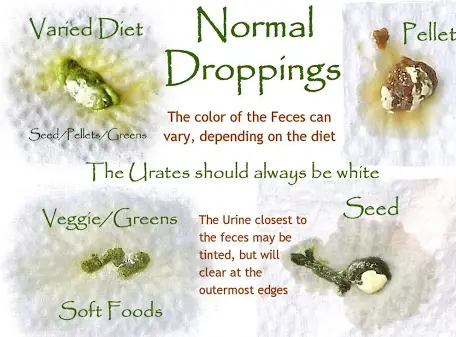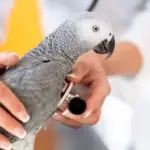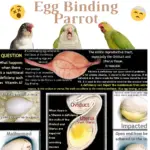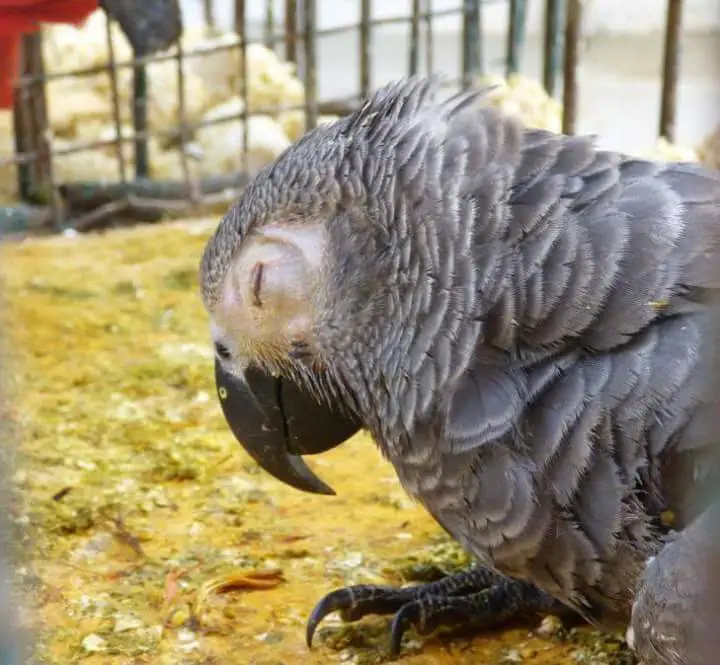Parrot diarrhea treatment
PARROT DIARRHEA
Diarrhoea in parrots goes beyond causing dehydration and nutrient loss. It poses a significant threat to their overall health and vitality, which is why it's essential to address it promptly.
It's imperative to distinguish between diarrhoea, which is less common in parrots, and excess urination, that's often misinterpreted as diarrhoea. A solid, formed stool indicates a healthy parrot, albeit perhaps with slightly loose or wet stool due to increased urination.
Several factors can trigger diarrhoea in parrots such as dietary changes, spoiled food, intestinal infections, poison, accidentally ingesting a foreign object, parasitic infections, broader diseases, issues related to egg-laying or egg-binding, antibiotic misuse, and stress. Let's elaborate more on each cause.
Signs and Symptoms of Acute Dehydration in Parrot
Parrot Dehydration

Parrot diarrhea treatment
Do parrots get diarrhea?
How to Stop Parrot Diarrhea?
Signs
Identifying diarrhoea involves looking for characteristic signs like loose, water-like, and unshaped droppings. Let's dive deeper into how to spot these signs.
Home Treatment
When dealing with a parrot suffering from diarrhoea, ensure no non-edible items are within reach. Stick to a bland diet comprising of soft, fresh foods like pasta, rice, beans, and cooked oatmeal. Over-the-counter medications like Pepto-Bismol or Kaopectate could also be administered, following vet-approved dosage.
- Cockatiel : 6 drops every 4 hours
- Amazon Parrot: 20 drops (1cc) every 4 hours
- Macaw and Cockatoos
Remember, any treatment offered at home will delay more specific treatment by your veterinarian. This time delay may be very significant if your parrot has a serious health problem.
Veterinary Treatment
Parrot diarrhea treatment
Because diarrhea is only the result of a problem and not a diagnosis, veterinarians need to try and determine the underlying cause to resolve the problem. Therefore, after a thorough history and physical exam, general supportive care will be provided. Diagnostic tests, such as stool analysis and or culture, radiographs, and blood tests, may be recommended.
how to prevent diarrhea and constipation in domestic birds?
The parrot can suffer from various digestive problems of various origins, manifested in many cases by diarrhea or constipation. In order to avoid a tragic outcome, these transit disorders must be dealt with in time and never hesitate to consult.
Summary
- Recognize a bird with diarrhea or constipation
- Causes of transit disorders in birds
- Treatments for transit disorders in birds
- Preventing transit disorders
- constipation and diarrhea in birds
Diarrhea and constipation in birds are not strictly speaking illnesses: they are symptoms linked to a more general digestive problem, which can have psychological, nutritional or pathological origins.
Recognize a bird with diarrhea or constipation and diarrhea in birds
Bird droppings have three components: feces (solid brown or greenish part), urates (white part of chalky consistency) and urine (liquid part). A bird suffering from diarrhea produces liquid feces, without any form, which mixes with urates and urine. Warning! We must distinguish diarrhea from polyuria, characterized by an increase in the liquid part of the droppings, but very solid feces. Polyuria is not always due to a pathology, it can simply result from a diet rich in fruits or from the absorption of water in large quantities by the animal.
Constipation is much rarer than diarrhea in birds. We observe a subject having great difficulty in making his needs, and having a dilated abdomen. It should not be confused with egg retention, a relatively common disorder unrelated to the digestive system.
Causes of transit disorders in Parrot
DIARRHEA IN THE BIRD
Diarrhea in parrots is caused by emotional shock or stress. It can also have pathological or alimentary causes. The most common are:
- A sudden change in diet
- Poor quality, spoiled or unsuitable food
- Food allergy
- Bacterial or viral disease
- A parasitic attack (roundworms, flatworms, protozoa …)
- A tumor
- Poisoning (lead poisoning)
- Inflammation of the liver or pancreas
CONSTIPATION IN THE BIRD
Constipation can be explained by a lack of exercise, obesity, an inadequate diet, or an obstruction of the digestive system by a foreign body.
Treatments for transit disorders in birds
While it is important to treat diarrhea or constipation quickly to avoid serious complications for the bird, the source of these symptoms should be addressed to prevent them from recurring. You can set up a home treatment, but it is often necessary to consult.
TREATMENT OF DIARRHEA
Eliminating any cause of stress is sometimes enough to cure diarrhea: place the bird warm in a quiet room, and rebalance its diet. You can give him charcoal and probiotics to help his digestive system get back in order. Also, make sure he drinks enough: diarrhea causes dehydration which can be fatal. If the bird is lumpy, not drinking and has pronounced apathy, or if its condition deteriorates visibly, consult an avian veterinarian urgently. The latter will set up a rehydration protocol and a drug treatment, after carrying out additional examinations depending on the case.
CONSTIPATION TREATMENT
If a pile of feces is present in the cesspool, remove it by very gently cleaning the back of your bird with lukewarm water. You can offer your pet a large number of fresh fruits and vegetables, which will act as a natural laxative, as well as a few drops of mineral oil. It is also possible to lubricate the cesspool with petroleum jelly. If the situation does not improve very quickly, consult a specialized veterinarian.
Preventing transit disorders
In order to prevent diarrhea and constipation, it is above all necessary to provide your bird with optimal living conditions: its habitat must be clean and adapted to its species, and its food must be of premium quality. Avoid any sudden change or unnecessary stress, and eliminate from its environment all toxic materials and foreign bodies that may be ingested.
Related Post:





















